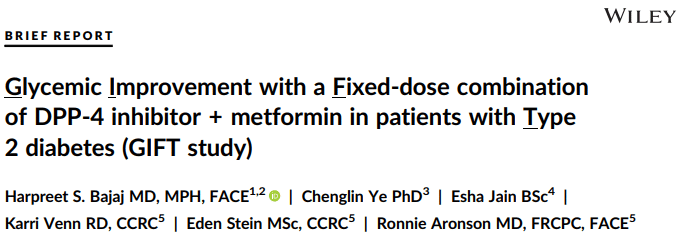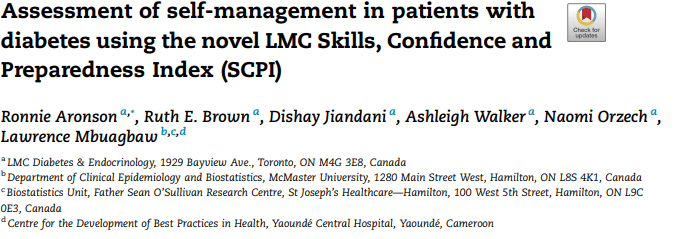2017

This study investigates changes in A1C following a switch from dual therapy of metformin and DPP-4 inhibitor to a fixed dose combination (FDC) of metformin + DPP-4 inhibitor following the introduction of the FDC in the provincial formulary. The LMC Diabetes Registry was queried retrospectively for patients with type 2 diabetes, aged between 18 and 80 years with at least one A1C recorded prior and ≥3 months post switch. In this real-world study, switching to FDC of metformin + DPP-4 inhibitor was associated with a significant improvement in A1C. Switching to FDC, especially in patients with high pill burden, can improve A1C goal achievement in clinical practice
Optimal diabetes care requires a specific set of self-management behaviours. The purpose of this study was to present the development and initial psychometric evaluation of a new tool to measure three key aspects of a patient’s diabetes self management: knowledge of the skill, confidence in being able to perform the skill and preparedness to implement the skill.


In randomized clinical trials, dapagliflozin has been shown to improve glycemic control, weight, and blood pressure. However, there is little real-world evidence of the effectiveness of dapagliflozin. The objective of this study is to investigate the real-world treatment outcomes of patients with type 2 diabetes (T2D) who initiated dapagliflozin in a referral based endocrinology practice
The LMC Skills, Confidence & Preparedness Index (SCPI) is an electronic tool designed to meet ISOQOL standards and (a) assess three dimensions: knowledge, confidence and preparedness; (b) provide a clinically meaningful measure; (c) provide immediate feedback to the healthcare provider. Internal consistency and external validity have been previously reported in a refractory diabetes cohort. This larger evaluation, broader in glycemic control, sought to assess clinical relevance to glycemia.

